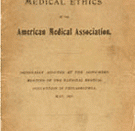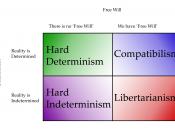In today's world it is all too prevalent to see more and more people hungry to gain success at an ever-increasing rate. Modern culture can and indeed is labelled 'greedy' and 'thoughtless'. Through my relatively short time spent in business, I have encountered many of these types of people. But who are they hungry for? Who benefits from their thoughtlessness, and why do they do what they do? More importantly, who is to blame when things don't go according to plan?
These are all questions asked constantly in the business domain, questions that often seem to include the word 'ethics' in their answer. Whether we look to consequentialism and always consider the outcome of a particular action, or conform to a more deontological form of ethical thinking and focus on always acting in a manner that seems 'right', I believe that a person cannot always be 'ethical', all of the time.
If it were that easy, ethics would be a very small area of study.
So what does the word 'ethical' mean? To me, it is to take into account every aspect involved in any given situation, peoples' feelings, thoughts and well-being, both now and in the future, and act as best one can to achieve the most satisfactory outcome for all concerned. From my viewpoint, acting in an ethical manner comes from each and every individual, each having learned from the environment in which they have grown and developed. Should the judgement, therefore, always be left to the individual?
This is certainly not the case, as more and more organisations in the business world develop codes of ethics that they expect each member to follow. This definition and management of ethics can be seen as a control-oriented position. This control paradigm for organisational ethics is largely concerned with extracting...


